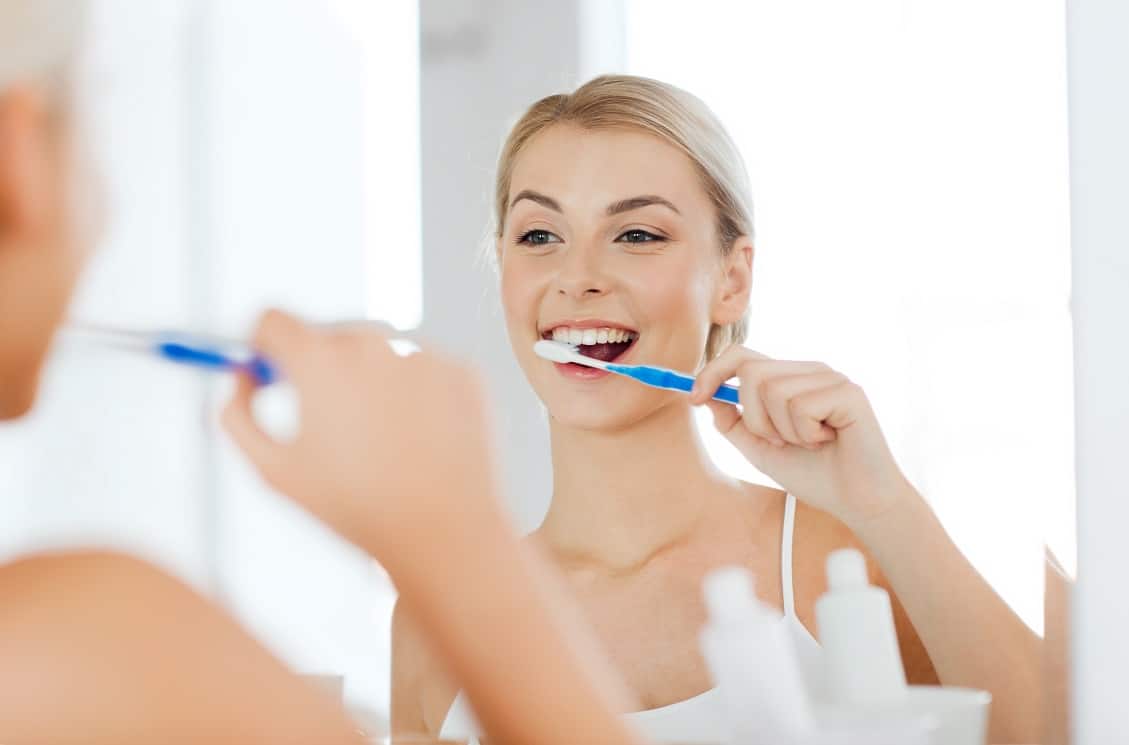If you have spent any time at all in the dentist’s office, chances are that you have heard time and again about the importance of brushing your teeth. However, some of the most common dental issues that many patients experience could be prevented or resolved through proper, regular tooth brushing techniques.
Your mouth contains a balance of both good and bad bacteria. When harmful oral bacteria are permitted to accumulate and remain in your mouth they contribute to undesirable oral health issues such as bad breath, gum disease and tooth decay. Effective tooth brushing techniques, followed by effective flossing techniques, can greatly reduce harmful oral bacteria at worst and completely eliminate these bacteria at best. The result is a healthier mouth that is less likely to suffer from bad breath, gum disease, tooth decay and other issues.
Healthy Brushing
While it may seem a fairly simple concept to run a toothbrush across your teeth in order to remove leftover food particles and harmful oral bacteria that attempt to linger there, an incorrect understanding of how brushing works best to improve your oral health may lead you to make mistakes that adversely affect your oral health. Following are three tips for healthier brushing:
- Brush at least twice a day, for about two minutes each time. It is important to brush your teeth every morning, just after you awake, in order to rid your teeth, gums and mouth of the harmful oral bacteria that can accumulate there during the night. It is also important to brush your teeth at night, before bed, for the same reason. In some cases, especially after meals that cause food to become stuck in between your teeth, you should brush your teeth more than twice a day in order to remove these food particles. Each time you brush, spend around two minutes gently brushing all surfaces of all teeth in order to achieve the best results.
- Use the right toothbrush and the right pressure. It may seem logical to use a hard-bristled toothbrush and intense pressure to thoroughly clean your teeth, but this abrasive approach can actually harm your teeth by stripping off the protective tooth enamel that covers them. Instead, you should use a soft-bristled toothbrush and gentle pressure in circular, massage-like strokes from your gum line down to the end of each tooth. The American Dental Association recommends replacing your toothbrush every three to four months, or as soon as you notice the bristles beginning to fray.
- Use a fluoride toothpaste. You may not know that your saliva actually contains harmful-oral-bacteria-fighting properties and therefore helps maintain healthier teeth and gums. This is just one more reason why it is so important to stay properly hydrated. However, as wonderful and miraculous as saliva is, it cannot do the job on its own. This is where fluoride comes in. Fluoride is a naturally-occurring mineral that can fight the bacteria-ridden plaque and sugars that seek to attack our teeth. Using an American Dental Association approved fluoride toothpaste can go a long way in helping to protect and maintain your oral health.
Properly brushing your teeth, and achieving all the benefits available, does require that one understand the balance between removing foreign particles from the teeth and preserving the natural, protective layers on the teeth. Even if you brush and floss properly and regularly, it is important to visit your dentist twice a year for professional examinations and cleanings. Your dentist is trained to use special tools and techniques you don’t possess at home in order to ensure a deeper, more thorough cleaning. She can also help to detect minor issues so that you can address and resolve them before they become major problems.
If you have any questions about how best to brush your teeth, please contact Dr. Saferin at Avenue Dental Arts today.


